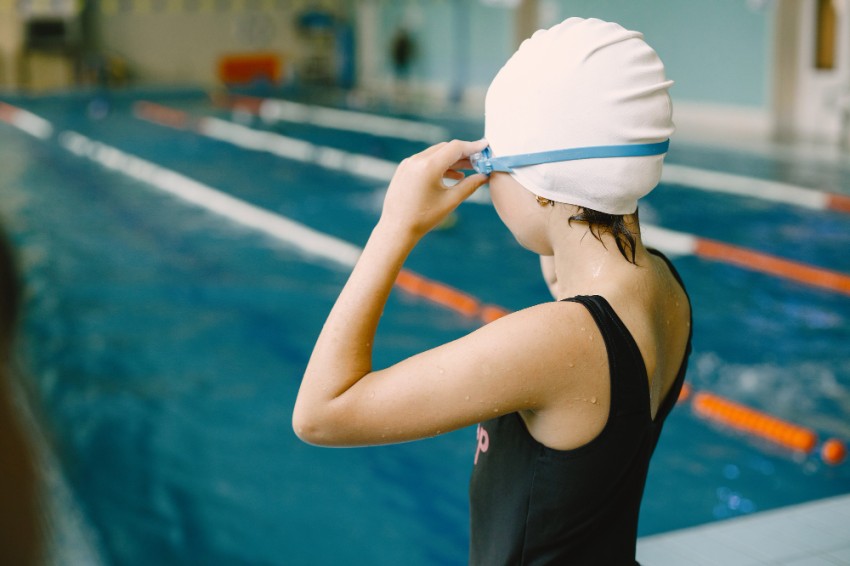- Opening hours : Monday to Friday from 8:30 to 17:00
We use cookies to analyze web traffic. No personal data is collected, and your visit is anonymized to protect your privacy.

MPs Van Nispen (SP) and Mohandis (GL-PvdA) have introduced a bill to reintroduce school swimming. For all younger readers: you used to get swimming lessons at school. Yours truly got his A and B diplomas during school hours. Parents didn't have to drive back and forth with us; the bus came to pick us up and take us back to school. I don't even remember any parent interfering with this whole process. Not even the diploma swimming did my parents attend. On the other hand, parents did not know any better and had no idea that they were comfortably and gratuitously relieved in this way. You feel it, I am a strong supporter of this bill.
A 2016 research report by the Mulier Institute for Social Science Sports Research concluded that there were many supporters of reintroducing school swimming with good arguments: better use of swimming pools, exercise, higher number of swimmers. However, the latter is not reflected in the survey, in other words, there are not fewer, even more, people with swimming certificates since the abolition in 1985. That abolition was part of the Basic Education Act by the Lubbers government of CDA and VVD. It was left up to municipalities whether they wanted to continue it. During the years that followed, many municipalities stopped it, mainly for financial reasons.
Apparently, many parents have taken responsibility themselves and have had their children privately taught swimming, with all the time investment and financial implications. In recent years, however, this has not been going as well. This is due to the influx from various foreign countries, where a swimming certificate is not among the primary necessities of life. So to them we owe the bill.
It took almost 40 years to come to the realization that the abolition of compulsory school swimming in 1985 was a nonsensical measure. But this is not an isolated case. It was the beginning of a new vision of social order, individualism, the withdrawal of government from the personal environment of the citizen. The latter did turn around quickly in recent years when the government saw massive fraud in lucrative schemes, see the Surcharges. That too can be traced back to stupid political decisions of the past. With the reintroduction of school swimming you take away some financial burden from parents, we can immediately do away with some of the surcharges right away.
But are we going to leave it at that?
Are we going to subsidize exercise and sports again? We have made many sports clubs disappear by taking money and accommodations away from them. The same goes for cultural institutions and associations. For every day that passes before we reverse this we should be deeply ashamed.
For me, a society's attention to sports and culture shows the level of civilization and development. We see it around us, obesity in young people, gaming and ipad as a daily main activity, drug use. And don't come at me with a financial argument. First, this is a core task of government, second, we have seen in corona time, during the energy crisis, in the refugee crisis and in the Ukraine crisis that we can easily spend billions. Cutting back on sports and exercise for your own citizens and spending money on expensive gas from Russia are totally wrong choices as far as I am concerned.
It would be good to take a structured look at what has been abolished in the past 40 years that we may yet regret. Daily school milk, on Wednesdays chocolate milk for example? The school dentist, these days we see oral care being shunned because of the cost. Speech therapy from the school, after speech defects were detected by the speech therapist. Subsidized music lessons; parents' contribution to music school was negligible. Visiting GP, instead of all together in the waiting room. In the process, the family doctor could also observe the home situation and include it in his expert advice. The patient was assessed much more in his living environment. Very low costs for basic services such as public transportation, water, gas, electricity, telephone. What we got in return: AZCs, youth care facilities, TBS clinics, addiction treatment, all for free. I guess it has to do with old age that I look back with nostalgia.
2 Comments
Peter
2 years agoTja Rob, ik hoor ook tot jouw generatie en tot de groep die met verbijstering de sloop van het rijnlands model heeft waargenomen en ervaren. Maar of onze volksvertegenwoordigers ooit nog het landsbelang voor hun eigen belang gaan zetten waag ik te betwijfelen. Hoop doet leven zullen we maar zeggen.
ReplyRob Kusters
2 years agoJa, Peter, je wordt er weemoedig van. Maar Rutte wordt secretaris-generaal van de NAVO en dat geeft toch wel heeeel veel hoop.
Reply